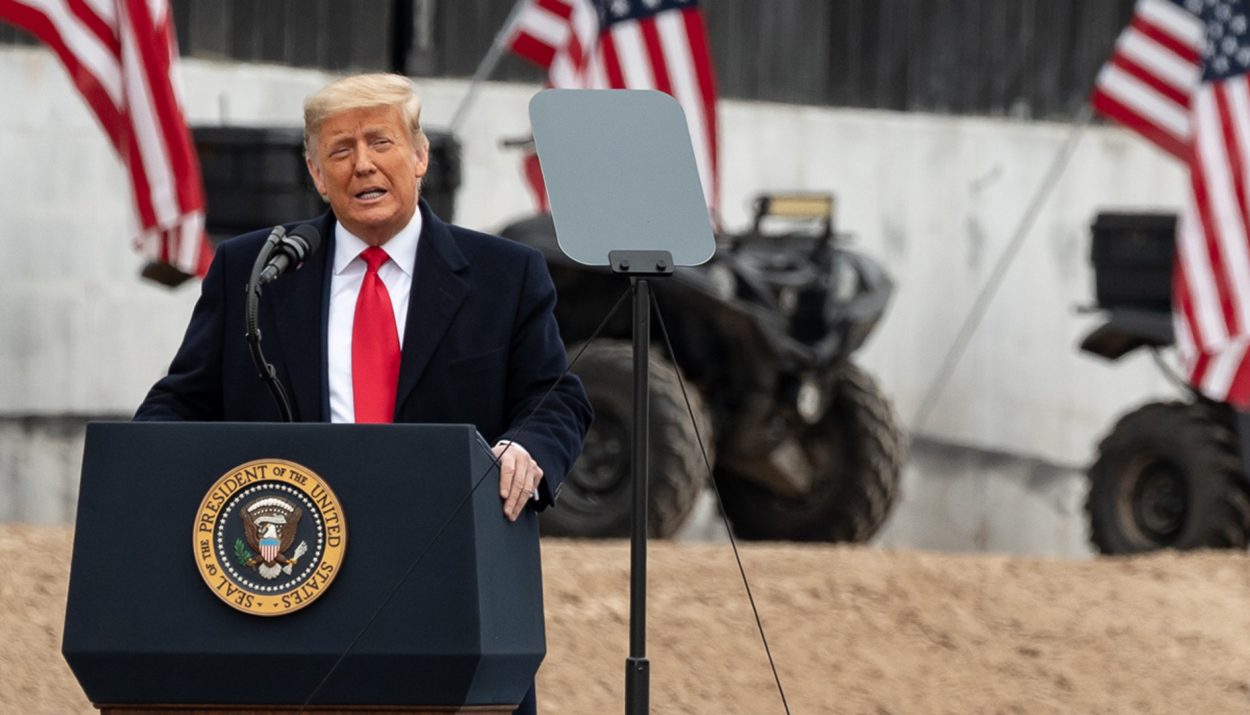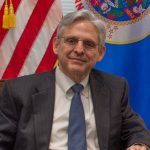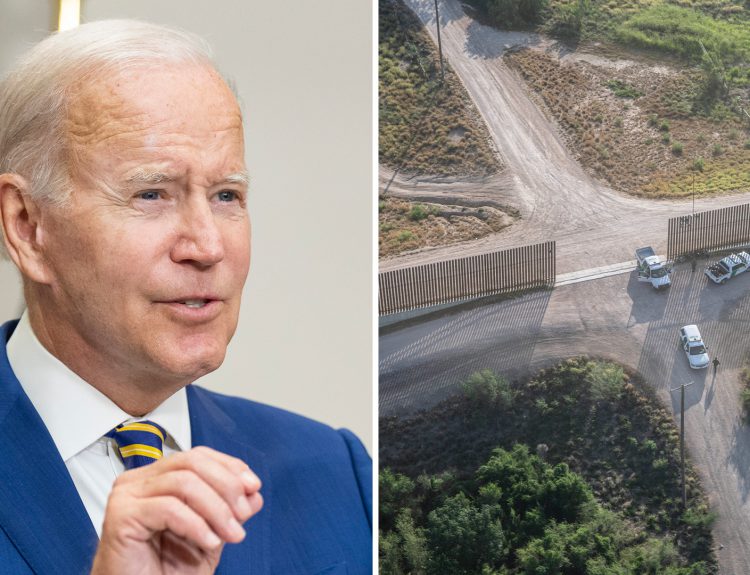A recent speech by former President Donald Trump at the Texas border has sparked controversy due to the presence of Major General Thomas Suelzer, the Texas adjutant general, standing in military uniform behind him. This incident has raised concerns about the appropriateness of military officials appearing at political events and has led to a heated debate online.
Trump’s Border Visit Sparks Controversy
During his visit to Eagle Pass, Texas, Donald Trump delivered a speech on border security, with Major General Thomas Suelzer standing behind him in military uniform. Sulzer, who heads the Texas Military Department and is the most senior uniformed Texas National Guard officer, was appointed by Republican Governor Greg Abbott, who accompanied Trump during the visit. The footage of Suelzer’s presence has sparked a heated debate online about the role of military officials in political events.
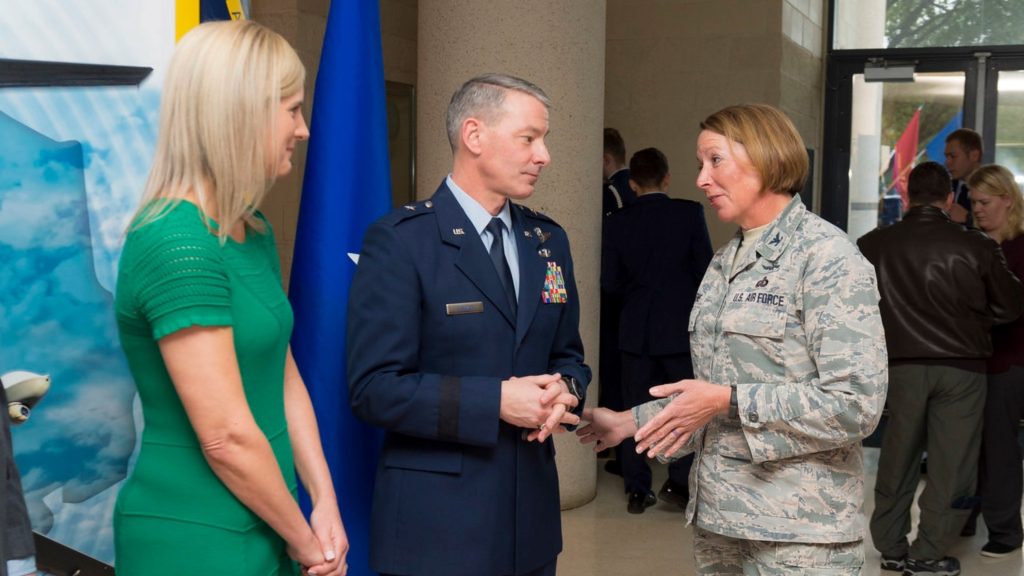
The controversy surrounding Suelzer’s presence stems from the fact that federal military officials are not allowed to endorse candidates running for office while in uniform. However, the rules are different for political appointees like Sulzer, who was appointed by Governor Abbott. Despite this, many have criticized Suelzer’s decision to appear at the event, arguing that it sends the wrong message about the military’s involvement in politics.
Trump’s Inflammatory Rhetoric Adds Fuel to the Fire
During his speech, Trump made several controversial statements, including branding California Governor Gavin Newsom “New Scum” and claiming that the Biden administration was allowing millions of people from unknown countries who don’t speak languages into the U.S. These remarks have added to the controversy surrounding the event, with many accusing Trump of using racist and inflammatory rhetoric to appeal to his base.
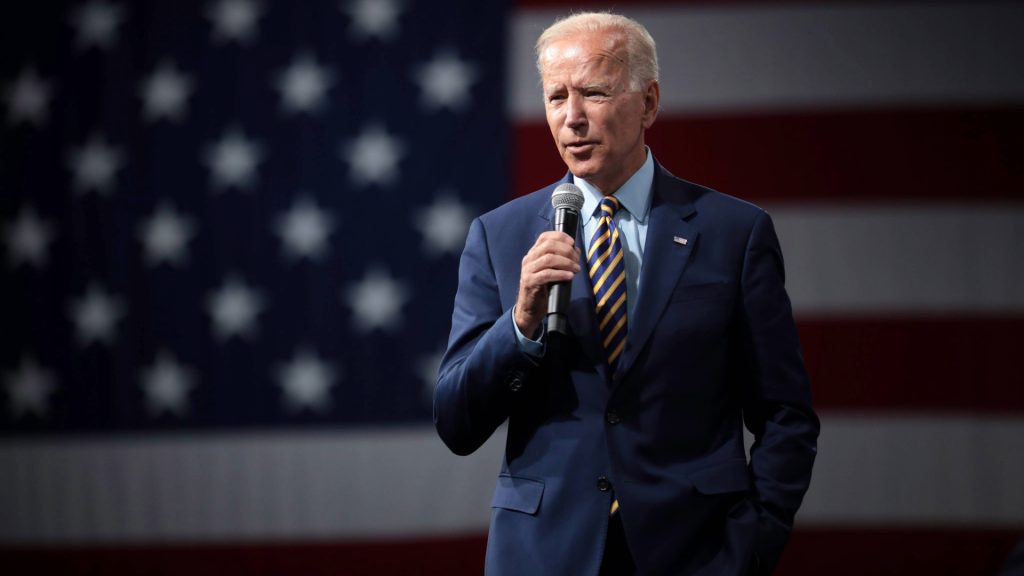
Suelzer’s presence at the event, coupled with his apparent nodding along to Trump’s remarks, has led some to question his judgment and leadership. Joe Perticone, a writer for Bulwark Online, said, “Not the best look for Maj. Gen. Thomas Suelzer on Trump’s shoulder, nodding along in uniform while a political candidate goes on a racist tirade at a lectern displaying his campaign’s fundraising number.”
Critics Slam Suelzer’s Presence at Political Event
The controversy has led to sharp criticism of Suelzer’s decision to appear at the event in military uniform. New York-based author Patrick Chovanec wrote on X, formerly Twitter, “Since Trump is not President, this is by definition a campaign event, and no one should be there in military uniform. Period.” This sentiment was echoed by others, who argued that Suelzer’s presence sent the wrong message about the military’s involvement in politics.

John Jackson, an ex-Republican who joined the Ukrainian military to fight the Russian invasion, went even further, calling Suelzer’s presence a “terrible failure of leadership.” He said, “It is Military 101 that you don’t act in a political capacity while in uniform. This man is utterly incompetent at best. Everyone knew this event was a political stunt. Nodding at racist trash.”
Hertling Defends Suelzer’s Presence
Despite the criticism, some have defended Suelzer’s presence at the event. Mark Hertling, a former army officer who commanded the United States Army Europe, pointed out that Suelzer is a political appointee rather than a member of the federal military. He said, “For those who may not understand, Maj Gen Suelzer is The Adjutant General of the Texas Guard. USAFA Class of 90 & a C5 pilot, he left active duty in 2007 and joined the Air Nat’l Guard. TAGs are political appointees & get their ranks/positions from their Governor. Abbott’s his boss.”
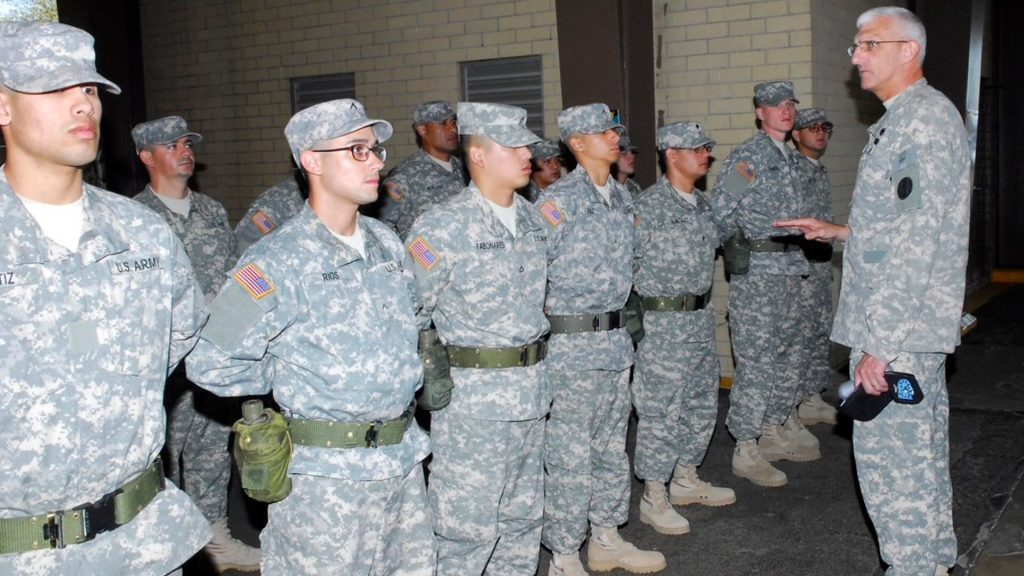
Hertling’s defense of Suelzer highlights the complex nature of the debate surrounding military officials’ involvement in political events. While some argue that Suelzer’s presence was inappropriate, others point out that his role as a political appointee makes the situation more nuanced.
Trump’s Claims About Immigration Rejected by Border City Mayor
During his speech, Trump made several claims about immigration, including accusing President Biden of discriminating against Catholics and allowing millions of people from unknown countries into the U.S. However, these claims were rejected by Victor Trevino, the mayor of Texan border city Laredo, who told CNN that what Trump had said was “not the reality.”

Trevino’s comments highlight the fact that Trump’s rhetoric on immigration is often at odds with the reality on the ground. Many border communities have pushed back against Trump’s characterization of the situation, arguing that his rhetoric is divisive and unhelpful.
The Broader Context of Trump’s Border Visit
Trump’s visit to the Texas border comes as he gears up for a potential 2024 presidential run. The former president has made illegal immigration one of the focal points of his campaign, and his visit to the border was seen as an attempt to galvanize his base and draw a contrast with President Biden’s approach to the issue.
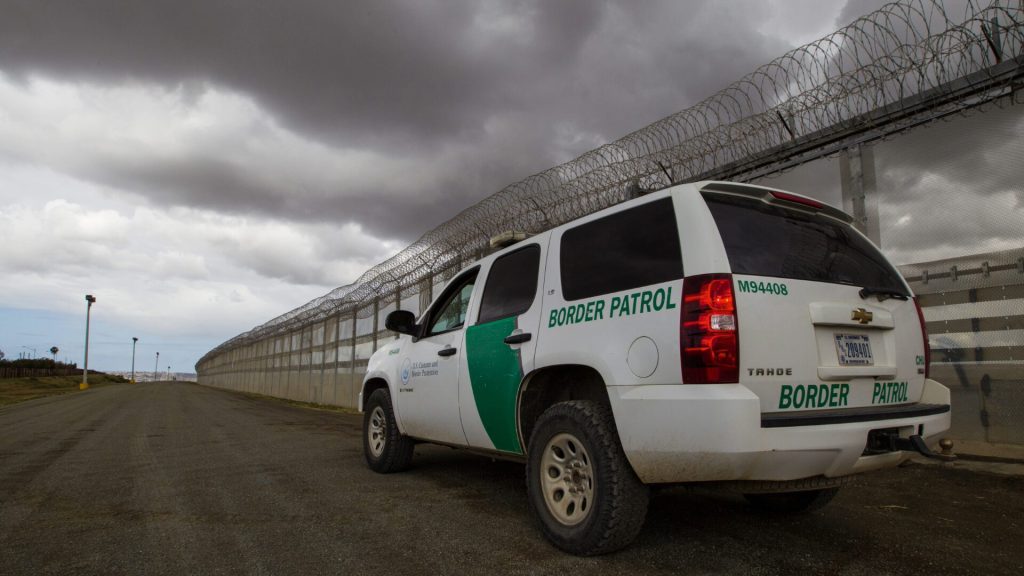
However, Trump’s visit also comes amid a broader debate about immigration policy in the U.S. President Biden has urged Republicans in Congress to back a bipartisan Senate bill aimed at improving border security and providing aid to American allies. The bill has faced opposition from some Republicans who argue that it does not go far enough in addressing illegal immigration.
The Implications of Suelzer’s Presence at the Event
The controversy surrounding Suelzer’s presence at the event has raised important questions about the role of military officials in political events. While some argue that Suelzer’s role as a political appointee makes his presence acceptable, others say that it sends the wrong message about the military’s involvement in politics.

The debate highlights the need for clear guidelines on the appropriate role of military officials in political events. While political appointees like Suelzer may have more leeway than federal military officials, there are still concerns about the message that their presence sends to the public.
The Importance of Maintaining Military Neutrality
The controversy surrounding Suelzer’s presence at the event underscores the importance of maintaining military neutrality in political events. The military is meant to serve the country as a whole, not any particular political party or candidate. When military officials appear to endorse a particular candidate or party, it can undermine public trust in the institution.
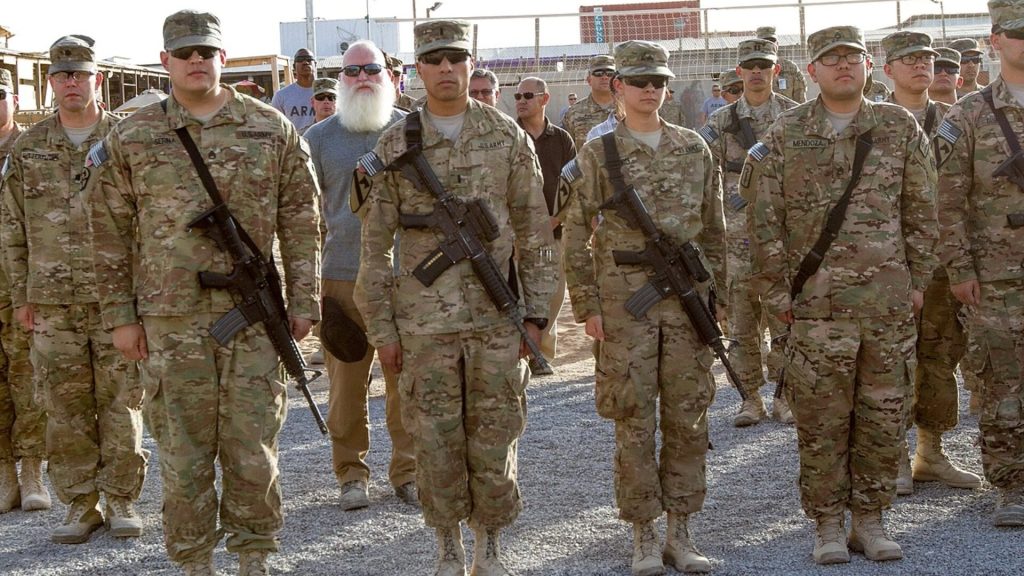
This is especially true in an era of heightened political polarization, where even the appearance of military involvement in politics can be seen as taking sides. Military officials must maintain their neutrality and avoid even the appearance of partisanship.
The Need for Clear Guidelines on Military Involvement in Politics
The debate surrounding Suelzer’s presence at the event highlights the need for clear guidelines on military involvement in political events. While there are rules in place for federal military officials, the situation is less clear for political appointees like Suelzer.

Establishing clear guidelines could help to prevent similar controversies in the future and ensure that military officials can maintain their neutrality and credibility. These guidelines should take into account the unique role of political appointees while still emphasizing the importance of maintaining military neutrality.
The Impact on Public Trust in the Military
The controversy surrounding Suelzer’s presence at the event could hurt public trust in the military. When military officials are seen as taking sides in political debates, it can undermine the public’s confidence in the institution as a whole.

This is especially concerning given the important role that the military plays in defending the country and maintaining national security. If the public loses faith in the military’s ability to remain neutral and above the political fray, it could have far-reaching consequences for the institution’s ability to fulfill its mission.
The Need for Greater Transparency and Accountability
The controversy surrounding Suelzer’s presence at the event also highlights the need for greater transparency and accountability when it comes to military involvement in political events. The public has a right to know when military officials are participating in political events and to understand the nature of their involvement.

This could involve requiring military officials to disclose their participation in political events and providing clear explanations for their presence. It could also involve establishing mechanisms for holding military officials accountable when they violate guidelines or undermine public trust in the institution.
The Role of Political Leaders in Maintaining Military Neutrality
Political leaders also have a role to play in maintaining military neutrality and preventing the politicization of the institution. When political leaders use the military as a prop in their campaigns or make inflammatory statements that undermine public trust in the institution, it can have a corrosive effect on military credibility.

Political leaders should be mindful of the impact that their words and actions can have on the military and should work to maintain the institution’s neutrality and credibility. This could involve refraining from using the military as a political prop and avoiding rhetoric that undermines public trust in the institution.
The Way Forward
Moving forward, it will be important for military officials, political leaders, and the public to work together to maintain the neutrality and credibility of the military. This will require establishing clear guidelines for military involvement in political events, increasing transparency and accountability, and fostering a culture of respect for the institution’s non-partisan role.

It will also require a commitment from all sides to prioritize the long-term health and credibility of the military over short-term political gains. Only by working together can we ensure that the military remains a trusted and respected institution that serves the interests of the country as a whole.
A Call to Action
The controversy surrounding Major General Thomas Suelzer’s presence at Donald Trump’s border speech should serve as a wake-up call for all Americans. It is a reminder of the importance of maintaining military neutrality and the dangers of politicizing the institution.

As citizens, we have a responsibility to hold our leaders accountable and to demand that they prioritize the long-term health and credibility of the military. We must also be vigilant in calling out attempts to use the military for political gain and in defending the institution’s non-partisan role. Only by working together can we ensure that the military remains a source of pride and unity for all Americans, regardless of their political beliefs. Let us use this moment as an opportunity to reaffirm our commitment to the values and principles that have made our military the envy of the world.

